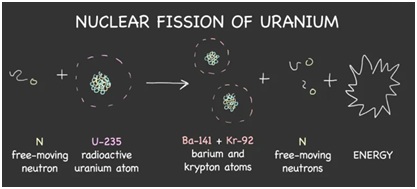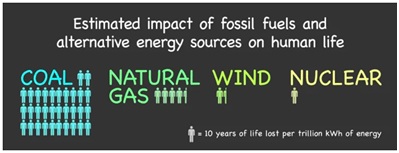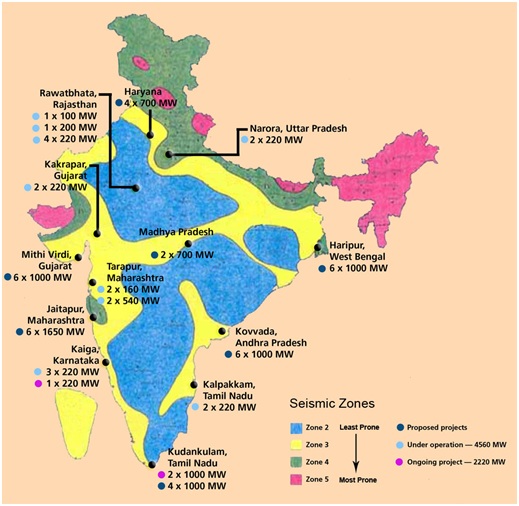

The Atomic Minerals Directorate for Exploration and Research (AMD), has begun exploring uranium deposits in Arunachal Pradesh near the border with China.
Context
The Atomic Minerals Directorate for Exploration and Research (AMD), has begun exploring uranium deposits in Arunachal Pradesh near the border with China.
Background
- The Atomic Minerals Directorate for Exploration and Research (AMD), under the Department of Atomic Energy (DEA), has been mandated to identify uranium and thorium resources required for the Atomic Energy programs in India.
- China has expressed disappointment over India’s uranium exploration in Arunachal Pradesh, which China refers to as 'South Tibet' and has refused to recognise Indian sovereignty in the region.
- Discovery of significant uranium reserves in Arunachal Pradesh can complicate India-China border talks and relations in general as both countries would now have more at stake in Arunachal pradesh.
- Current sources of Uranium in India,
- Domestically, a major portion of Uranium comes from Jadguda mines in Jharkhand.
- Uranium is also extracted from Tummalapalle mines in Andhra Pradesh.
- We source most of our uranium through import uranium from Kazakhstan, Canada and Russia.
- Imported uranium is used for civil purposes only, while domestically produced uranium is used both for civil and military applications.
Analysis
Uranium was first discovered in the 18th century, and is an element found in trace quantities, almost everywhere on Earth.
About Uranium
- Uranium is a radioactive and toxic element with atomic number 92.
- Naturally occurring uranium consists of 99% uranium-238 and 1% uranium-235. Uranium-235 is the only naturally occurring fissionable fuel (a fuel that can sustain a chain reaction).
- Uranium occurs naturally in several minerals such as uraninite (pitchblende), brannerite and carnotite. It is also found in phosphate rock and monazite sands.
Uranium reserves in World
- The largest deposits of Uranium in the world are found in Australia, Kazakhstan and Canada. Over two-thirds of the world's production of uranium is from these three countries.
- Russia, South Africa, Namibia, Niger and China also have uranium reserves to some extent.
|
Major international treaties on peaceful use of nuclear energy
|
Uranium in India
- In India, Uranium is associated with the Dharwar rock system.
- As there are no significant Uranium deposits in India, most of the country’s demands are met through imports, from countries like Russia, France and Kazakhstan.
- Following image highlights significant uranium reserves in India,

Uses of Uranium
- Civil Purposes
- Uranium provides us with nuclear fuel used to generate electricity in nuclear power stations.

- Nuclear Reactors using uranium generate about 10% of the world's electricity.
- In India, Nuclear Power contributes to only around 2% (total capacity of 6.7 GW) of the country’s total electricity supply.
- Nuclear Energy is a zero-emission, clean source of Energy.

- Uranium provides us with nuclear fuel used to generate electricity in nuclear power stations.
- India’s nuclear plants are controlled by Nuclear Power Corporation of India (NPCIL), a state-owned corporation which was founded in 1987.
- Nuclear Power Plants in India:

- Military Purposes
- Uranium is used by the military to
- power nuclear submarines
- nuclear weapons.
- Uranium is used by the military to
Problems associated with Nuclear Energy Production in India
- Harmful Radiation: The major concern from Nuclear Power Plants is the leak of radiation. This radiation can have harmful impacts on humans, animals and the environment.
- Waste Disposal : Disposal of Radioactive waste has been the cause of major concern, as the waste will emit radiation for thousands of years to come.
- Liability in case of accidents: The Atomic Energy Act, 1962, does not provide any clear answer to the question of liability in case of accidents.
Some Measures that can be taken
- Periodic Inspections: Atomic Energy Regulatory Board, established under Atomic Energy Act, 1962, should ensure periodic supervision of Nuclear Power Plants.
- International standards, such as those established by IAEA, should be followed.
- Technology Upgradation: This will help in minimizing the risks further.
Way Forward
- Less than 2% of India’s electricity demand is met through nuclear energy. One of the major reasons for such low scale is lack of availability of nuclear fuel in India.
- India has been advancing in the field of thorium-based fuels, working to design and develop a prototype for an atomic reactor using thorium and low-enriched uranium, a key part of India's three stage nuclear power programme.
- If significant uranium reserves are discovered in Arunachal Pradesh, it could prove transformative for India’s energy landscape.
Conclusion
Nuclear Energy has great potential to support our endeavours to achieve green energy to deal with the Global Climate crisis. However, Nuclear Energy has two major concerns. One is that nuclear fuels like uranium, can be misused to produce weapons of mass destruction. Second, nuclear reactors, though non-polluting, pose severe contamination risks in case of a mishap or disaster. Fortunately, the world is on the right track to deal with both problems in the most comprehensive way possible.


